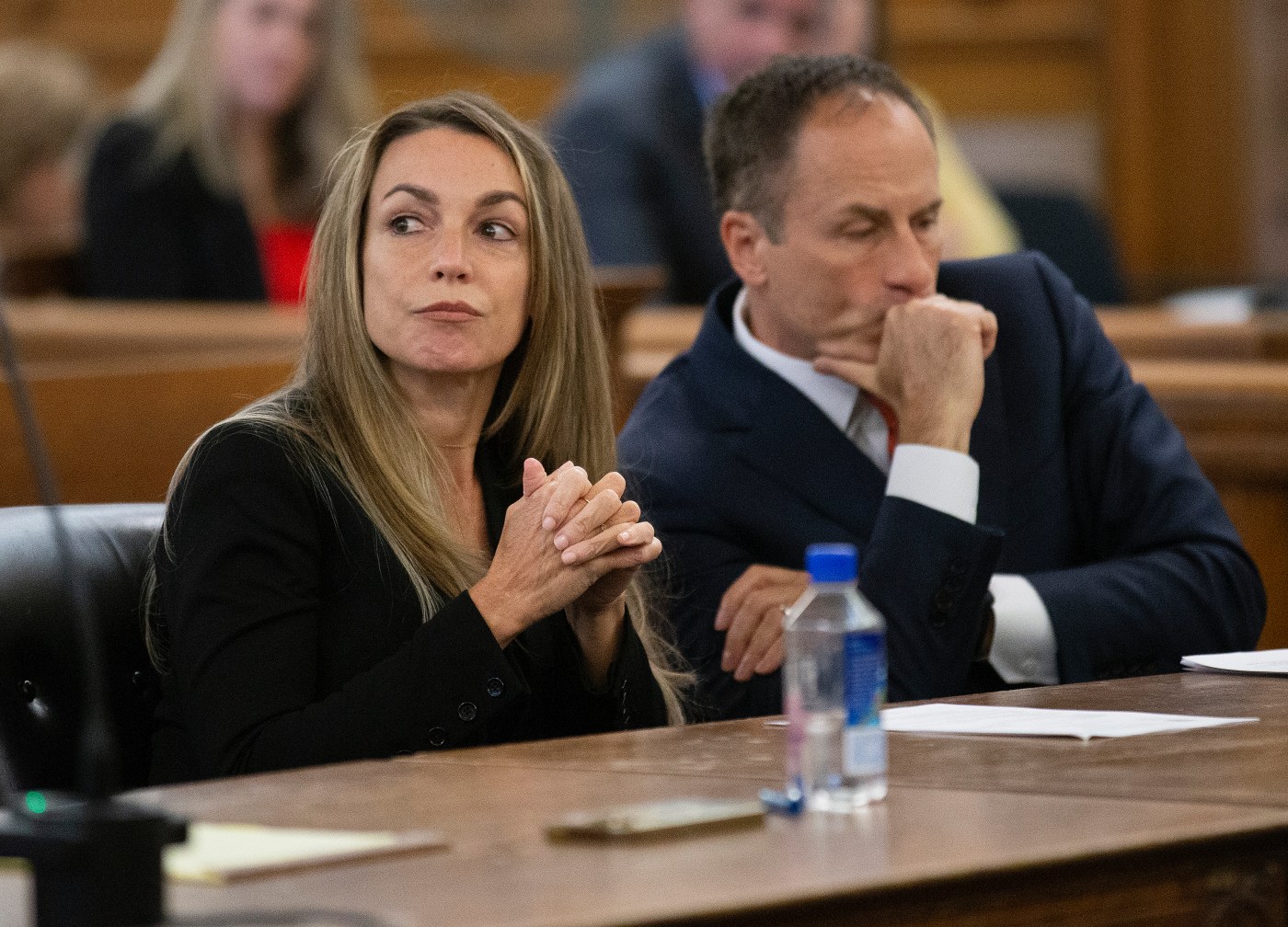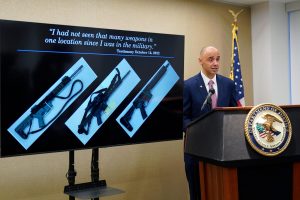
Karen Read case back in court for final day of evidentiary motions
It was an unusual day in the case of Karen Read: a more subdued motions hearing as the nearly 2-year-old case moves closer toward trial.
“I don’t want to change the trial date for this,” Judge Beverly Cannone said from the Norfolk Superior Court in Dedham Friday. “This case will go to trial March 12th.”
The case of Read, a Mansfield woman indicted for the murder of Boston Police Officer John O’Keefe — her boyfriend of two years at the time — in late January 2022, has ignited passionate followers who have treated the proceedings almost like sporting events.
Waves of people, most of whom seem to be on the defense’s side, attend every hearing. Most of them stay outside around the courthouse steps with signs calling for Read’s case to be dismissed or blaring defense theory tropes that point toward the culpability at two others for O’Keefe’s death. Other followers pack the courtroom gallery.
Another 125 or more people signed on to Zoom to follow the hearing remotely. At one point a man could be heard saying “Free Karen Read, free Turtleboy” from Zoom. The court clerk quickly muted him.
Friday’s hearing took place on the last day for evidentiary motions to be filed before the trial takes place — tentatively scheduled for March 12, a date Judge Cannone seems determined to keep.
Prosecutor Adam Lally and defense attorneys David Yannetti, Alan Jackson and Elizabeth Little argued over a series of motions, which Cannone took under advisement but did not immediately rule on.
Related Articles
Howie Carr: My predictions for the new year’s news
‘Turtleboy’ jailed, bail revoked, pleads not guilty on new charges
‘Turtleboy’ released, stripped of restraints following arraignment in Karen Read case witness intimidation charges
Karen Read case-focused blogger Turtleboy indicted on 16 counts
The first was a defense motion requesting access to communications involving Jennifer McCabe and Massachusetts State Police Trooper Michael Proctor and his wife Elizabeth Proctor. The defense has argued that there is a “personal relationship” between McCabe and Proctor, who is an MSP detective assigned to investigate the Read case.
The defense has leveled a third-party culpability theory to exculpate Read for O’Keefe’s murder and have fingered McCabe and Boston Police Officer Brian Albert, the owner of the home at 34 Fairview Road in Canton, where O’Keefe’s body would be found in heavy snow in the front yard, as those ultimately responsible for O’Keefe’s death.
Kevin Reddington, a lawyer for McCabe, argued against the defense having access to these records. He said it was not only a violation of his client’s privacy but he also disparaged the reasoning behind the motion, stating that the relationship between McCabe and Trooper Proctor was distant at best.
Prosecutor Lally agreed with that, and stated a very long list of people that separate the relationship between the two. He had written in a response to the motion that “The Commonwealth firmly rejects the defendant’s supporting ‘facts’ which are a set of far-reaching inferences and factual omissions presented to fit the skewed, self-serving narrative.”
But he later wrote that under case law, he “does not oppose the request for this court to issue narrowly tailored summonses to Jennifer McCabe, Trooper Micahel Proctor, and Elizabeth Proctor to provide documents, to the extent they exist.”
Next up was the defense’s opposition to the prosecution’s request to restrict DNA sample collections. This was nearly a non-starter as it appears the sides were in closer alignment with how to handle the DNA testing than they had thought.
An attorney for Trooper Proctor and Trooper Yuri Bukhenik, another MSP investigator in the case, said that her clients did not need to provide their DNA but would do so because they are professionals, “they simply ask for clarity on how their DNA will be handled.”
Lally had suggested that the state crime lab handle testing since that would be the quickest solution ahead of the trial date, but since the defense believes there is a state coverup in the investigation had also recommended a third-party tester in Virginia. Yannetti was fine with the third party tester.
Yannetti was also fine with the defense being provided the sample results. He also argued that the defense be allowed to use samples of the troopers’ DNA to do comparative analysis on other physical evidence in its own “independent investigation” of the facts of the case.
A final motion on a proposed protective order of the Norfolk District Attorney’s office communications with federal authorities was not argued because Cannone said that the defense had served only the DA’s office with papers and not the U.S. Attorney’s office “and they have a right to be heard.” A virtual hearing on that matter was scheduled for Jan. 23 at 3 p.m.
The defense said they would be filing motions to dismiss the indictment by the end of the business day.
This is a developing story.


